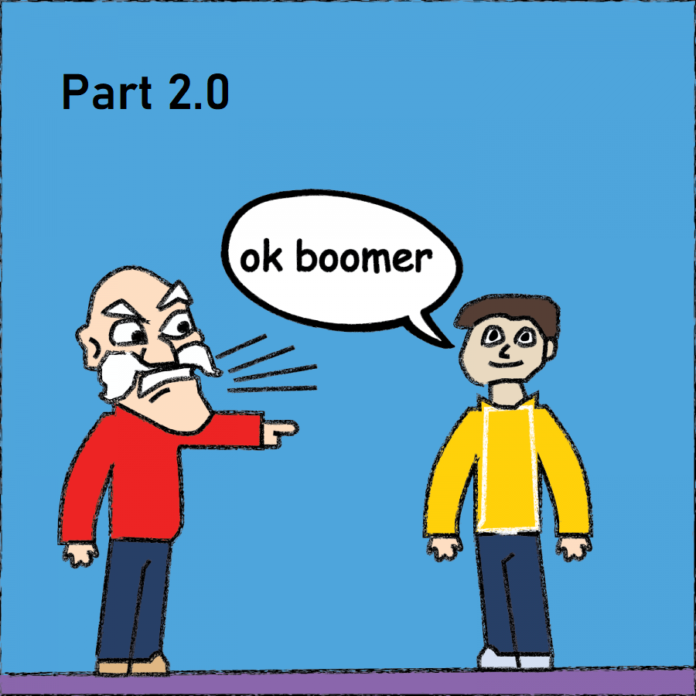I’ve had many posts and replies to ‘OK, Boomer’, regarding when things were invented vs the Boomers’ ages, and so forth. I’d like to clarify, if I may. H/T to @Sean Ollech.
I did not mean to imply that Boomers (those born in the US between 1945 and 1965) invented the modern world, or all of the technology that makes it so. Something created in 1950 would be an impossibility for a Boomer, as the oldest Boomer in 1950 was only 5 years old! And many technological leaps were the result of years, if not decades, of combined inventions, research, improvements, refinements, and such, all over the world (not confined to the United States).
First, the building blocks of the Information Age span CENTURIES! From Benjamin Franklin’s discovery regarding lightning (1740s), to Edison (or Tesla) refining electricity creation (1880s), to the creation of the transistor by Bell Labs (1947), to the IBM release of their version of the Personal Computer (1983), to the release of the first iPhone (2007), ALL are necessary steps to the final (as of now) product. The languages and operating systems, along with the Internet, GPS satellites, and the whole world of high-tech would build upon these accomplishments, and either wouldn’t have happened at all without them, or would’ve changed the timeline of their usefulness if any steps were missing.
Second, moving from the invention (prototype) phase to the commercial phase can sometimes take decades. It requires time, effort, vision, and cash to bring a consumer product to life. And sometimes, that investment fails (see: Betamax, Laser Disc, etc.). I hope you sold your stock in Blockbuster Video before it crashed.
My premise of the original Boomer article is that the Boomer generation did most of the heavy lifting for the second phase of both the Information Age and the Atomic Age. Taking the inventions of the prior generations, and refining them in such a way as to create an environment condusive to the exponential growth of consumer-facing usage of both. I referenced the growth in technology in the first article, but I need to emphasize that base inventions were created by prior generations.
I also referenced the societal impact of various conflicts that all or many Boomers lived through: from the Korean War, to the Viet Nam War, to the Cold War, to the present. Now, I KNOW that the Boomers did not directly participate in the Korean War—at its end, the oldest Boomers were barely 7 years old! But as children of families of deployed military, many Boomers absolutely felt the stress and emotions of fathers, brothers, and uncles fighting overseas. The reference to wars was only to highlight that, post-1974, with the ending of the military draft, children from that point forward were spared that stress, other than the families of our now fully volunteer forces. If your family isn’t military, it is rather easy for others to forget that we are fighting in distant hotspots. When the draft was in place, the fear of being drafted was quite real. I’ve also been reminded that we lost the Viet Nam War. I find that a burden unfairly attributed to an entire generation, as the political leadership in the US at the time prevented the US from winning that conflict—many, if not most of those political leaders were pre-Boomer age.
In any case, the Boomer generation was not idle, nor were they perfect, or even close. But to discount or remove their role in our advancement as a society is extremely thin logic. As the original article says, dismissing the Boomers as incompetent or ignorant of the very technology and advancement they helped foster is more than a bit short-sighted.




















